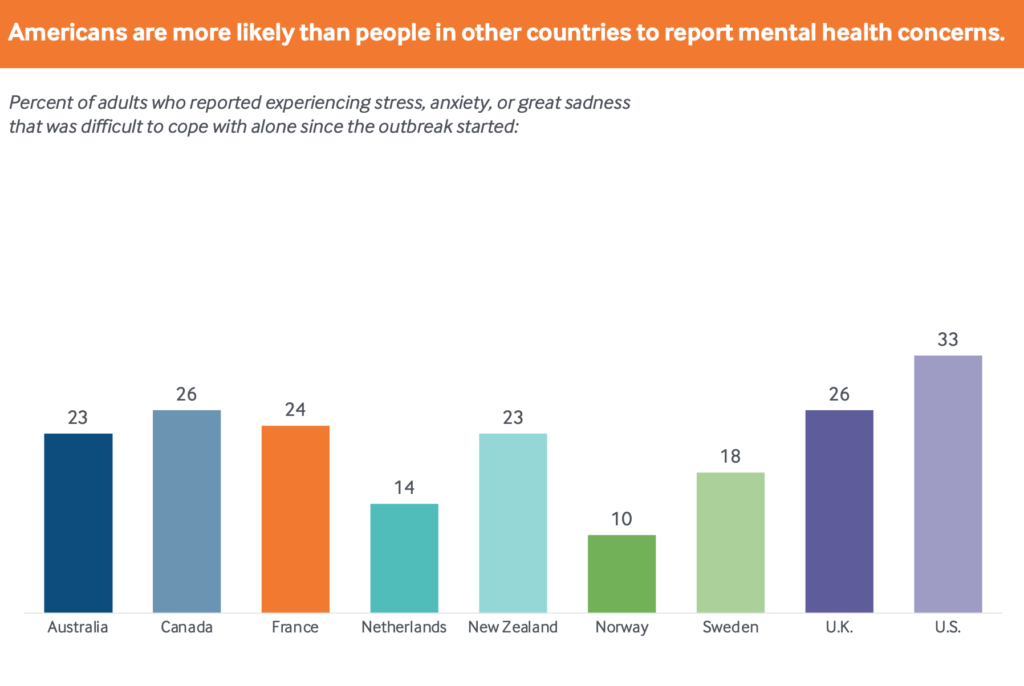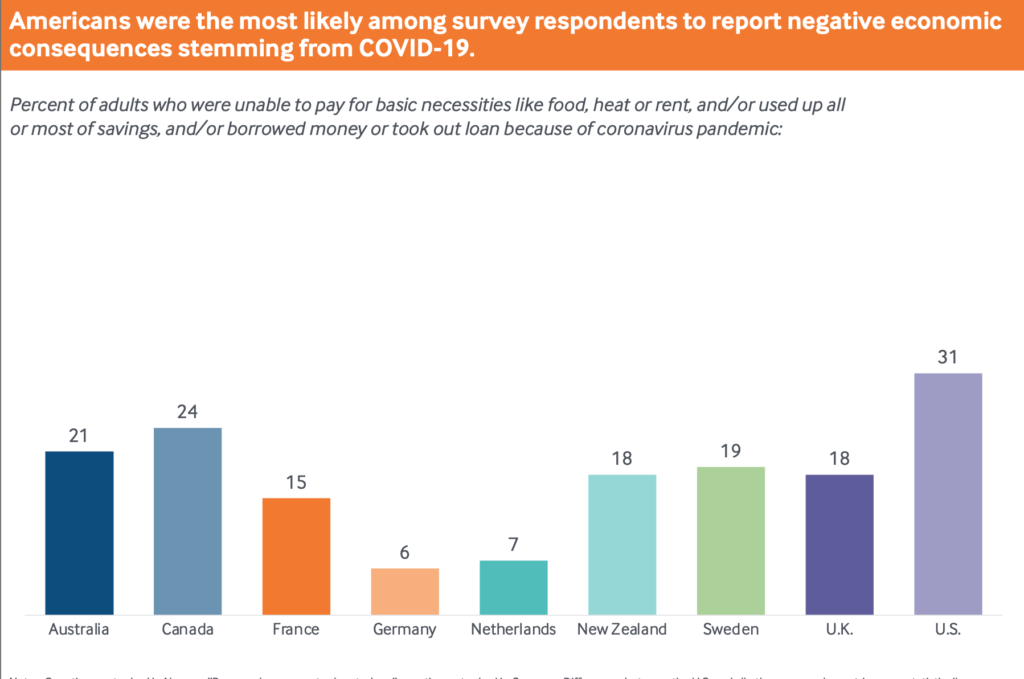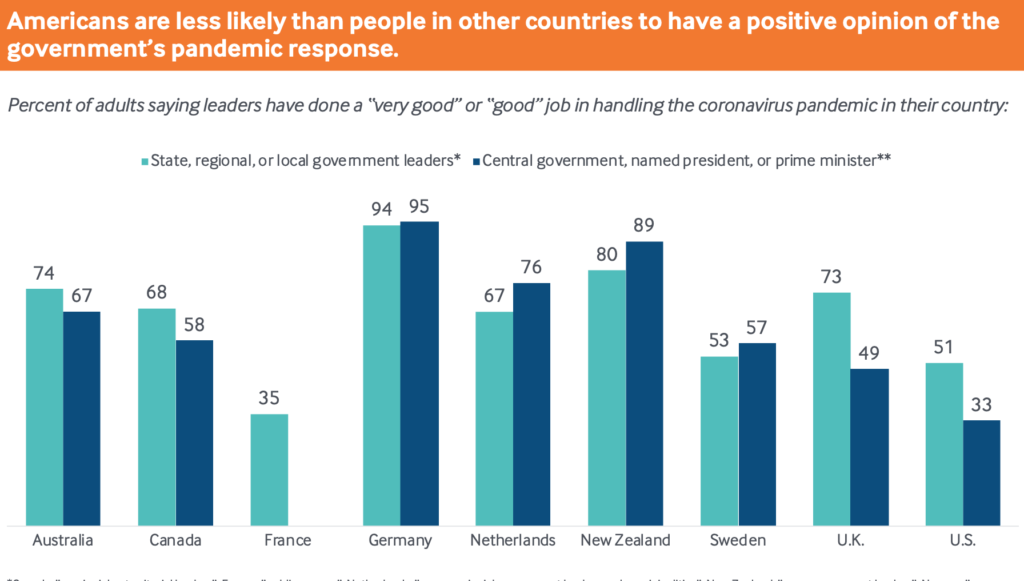
Survey of High-Income Countries Shows People in United States Are Faring Much Worse During COVID-19 and Are Less Likely to Approve of How Government Has Handled Pandemic
From the Commonwealth Fund
Compared to residents of nine other high-income countries, people in the United States are experiencing greater mental health and economic challenges from COVID-19, and they are less happy with their national leaders, according to a new report from the Commonwealth Fund.
The analysis, Do Americans Face Greater Mental Health and Economic Consequences from COVID-19? Comparing the U.S. with Other High-Income Countries, is the newest of the Commonwealth Fund’s cross-national health care comparisons.
It provides country-specific data on people’s experiences during the early months of COVID-19 (March–May) in the U.S., Australia, Canada, France, Germany, Netherlands, New Zealand, Norway, Sweden, and the United Kingdom.

Among the findings:
- Americans are more likely to report mental health concerns since the start of the pandemic. One-third (33%) of U.S. adults reported stress, anxiety, and great sadness that was difficult to cope with by themselves, compared to about a quarter or less in other countries.
- Americans are the most likely to report negative economic consequences because of the COVID-19 pandemic. More than 30 percent of U.S. respondents said they have struggled economically and were unable to pay for basic necessities, used up all their savings, or borrowed money, a significantly greater percentage than in any other country. Rates were also high in Canada (24%) and Australia (21%) but were low in Germany and the Netherlands, where only 6 percent to 7 percent of respondents reported the same.
- Americans are the least likely to have a positive opinion of the national government’s pandemic response. Only 33 percent of U.S. adults said President Trump has done a “good” or “very good” job of handling the coronavirus pandemic. In the other countries, between 49 percent and 95 percent of respondents approved of how their president or prime minister has dealt with the crisis. People in all the countries surveyed appreciated health care workers’ response to the pandemic, with 78 percent to 96 percent saying that hospitals, nurses, and doctors had done a good or very good job.



